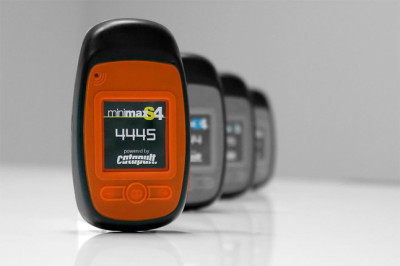Edit: According to an article I saw here, apparently the GPS tracking isn’t reducing the injuries to players, as they still have a staggering amount of injuries. Maybe the GPS thing isn’t working out for them after all?
GPS devices are becoming more and more prevalent in America’s favorite game, and even the technophobic Giants head coach has invested money in a system to track his players health and location, the Wall Street Journal reported.
Last year, the NFL approved the use of GPS trackers to not only track physical location of players whilst on the field, but also to monitor heart rate, pace, speed and other factors. This data is collectively referred to as “player load.” Several teams including the Bills, Falcons, Cowboys, Jaguars, Eagles and Rams already use this technology, NFL reported last year, and the list is only going to grow.
The data has been used to significantly change the structure of football practices, allowing players hydration breaks and monitoring performance more accurately. It may even cause fewer soft tissue injuries and allow your favorite athletes to spend more time on the field than on the sidelines.
Of course, this use of GPS may seem like something new and unusual to most, but sports enthusiasts have been using GPS trackers for years to monitor heart rate and other health concerns when training and out on a run or ride. It’s a good way to not only test yourself but also easily measure your improvement and activity throughout the ride, run or hike. It just took the NFL and professional teams some time to catch up, and now they have
So what does it mean for America’s favorite sport?
Right now, not a whole lot unless your team is one of the small number using GPS. The majority of the NFL seems to be standing back and watching for now to see what difference it will make, and I expect the difference will be quite notable. Players won’t suffer as many injuries because coaches won’t be pushing them past their limits as frequently, which means that your favorite all-star athletes will perform even better than before. It will be interesting to see whether or not this gives these teams a notable advantage on the field or not.
Then again, some players might not take this kind of super monitoring as kindly as others, so widespread adoption might take quite a while. If it is as helpful as I expect, it might even just be included in their contract that they agree to be monitored on the field.
The landscape of the football field might see some big changes as this becomes used more and more. Or…maybe not. What do you think?

